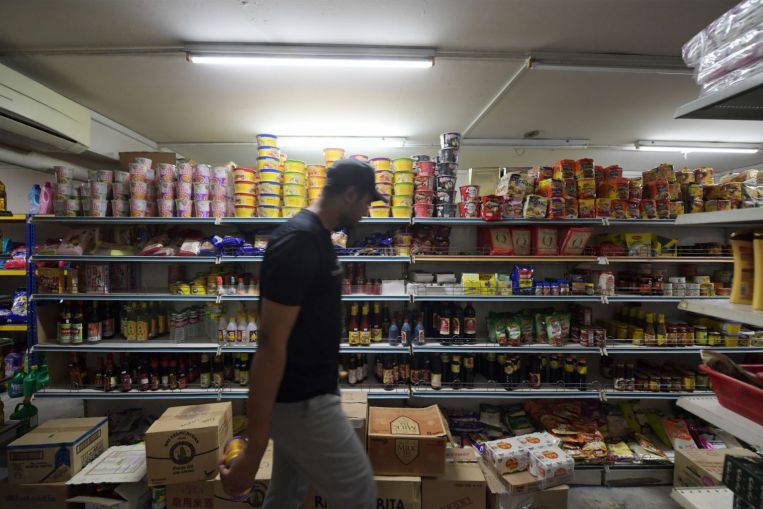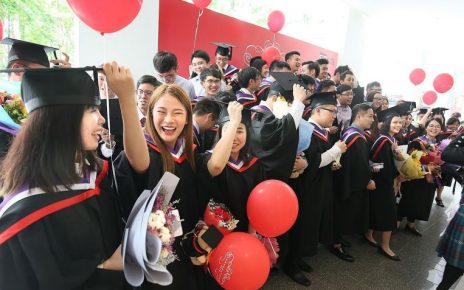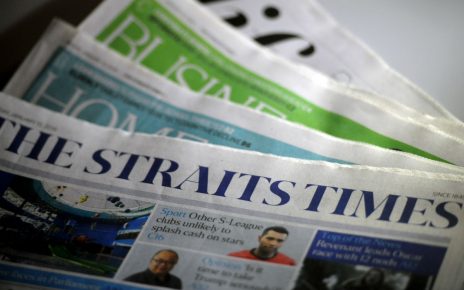
Political leaders and experts have come out in force to call for calm and urge people to be responsible, following a second day of panic buying of provisions at stores here.
Photos and videos of empty supermarket shelves and people purchasing large amounts of food flooded social media, after Singapore raised its response level to the coronavirus outbreak from yellow to orange on Friday.
Environment and Water Resources Minister Masagos Zulkifli emphasised, however, that Singapore has enough food stocks, with others like MP for Nee Soon GRC Lee Bee Wah saying that the island’s supply chains remain intact, and sociologist Paulin Straughan condemning the hoarding behaviour as “irrational”.
Yesterday, President Halimah Yacob urged Singaporeans not to succumb to behaviours that are “not helpful to ourselves or our community”.
“The Government is giving very regular, almost daily, updates on what’s happening and the current status to be absolutely upfront, but it may create a sense of urgency in people. I hope that people take this information and process it in a rational manner,” she said.
Mr Masagos said the challenge is in transporting the food from warehouses to shelves islandwide so that they are always filled, and that the recent panic buying of food from stores would contribute to false impressions of a food shortage.
“This is not the way to meet challenges that our country is facing – all we have to do is keep calm,” he said.
Ms Lee said: “Ironically, the only thing leading to empty shelves is the panic buying.”
But she noted that it seemed to be dying down as of yesterday evening, with shorter queues and restocking efforts catching up.
“If people stop panic buying, the restocking can catch up within a day,” she added, emphasising that Singapore’s food supply chains remain intact.
MacPherson MP Tin Pei Ling felt that the panic buying revealed fears about Singapore going into a lockdown situation similar to that of Wuhan, the epicentre of the virus.
“There’s no curfew, there’s no lockdown… just that everyone’s being asked to be more cautious,” she said. “People’s anxiety can be fully understood, but if it’s going to go into panic, that’s not going to be very helpful. We need to be clearer about what situation we’re in.”
She added that she met residents yesterday morning and explained what going to code orange means.
“The most important thing is to keep calm – the Government and NTUC have given assurance that there’s enough. But if everyone’s buying much more than they need, then it’ll be quite challenging,” she said.
Infectious diseases expert Paul Tambyah agreed that fear of quarantine was likely driving people to stock up on groceries and other essentials.
“People are afraid that if they get quarantined, they will not be able to leave the house during the two-week quarantine period, and be unable to stock up on their favourite chocolate or other items,” he said.
The Singapore Psychological Society also weighed in yesterday on its Facebook page, posting a list of seven things people here can do to help manage their fight-or-flight response to the situation.
Professor Straughan of Singapore Management University said that the food items being hoarded – tinned goods, dried food and rice – reflected a concern for the long haul. She added that most of the time, “irrational acts” such as hoarding occur when there is a lack of information, or if people do not trust the information they are given.
However, she added: “People don’t act (like this) without some truth to their fears.
“We’ve seen situations where masks, thermometers and sanitisers have disappeared, so it feeds in to this perception that food might disappear next – or even toilet paper.”
• Additional reporting by Dominic Low and Michelle Ng



